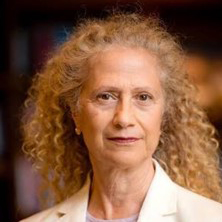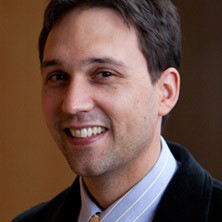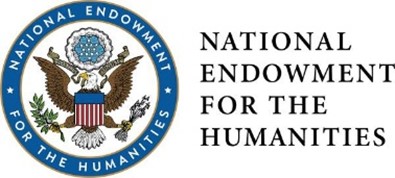
Business Humanities Symposium: "Integrating the Humanities and Business Education"
Friday, October 20, 2023 from 8:30 a.m. – 4 p.m.
Bethany Hall
Seton Hall University, South Orange, NJ
The Seton Hall University Business Humanities Initiative is a collaboration between the College of Arts and Sciences and Stillman School of Business. The goal of the initiative is to integrate perspectives and approaches in the humanities, the liberal arts more broadly, and business to help cultivate ethical and effective leaders and create business practice that protect human dignity, contribute to human flourishing, and serve the common good.
Symposium sessions will focus on innovative approaches to developing business humanities courses and developing a business humanities curriculum. View the full schedule »
Key Sessions and Invited Speakers


Christopher Michaelson, Ph.D.
Professor, Opus Distinguished Professor of Principled Leadership, University of St.
Thomas
Christopher Michaelson is the Opus Distinguished Professor of Principled Leadership and the Academic Director of the Melrose and The Toro Company Center for Principled Leadership at the University of St. Thomas, Opus College of Business. As a prolific scholar and business advisor, he explores how meaning and purpose in life and at work can improve our own and others' lives. Michaelson helped launch a business ethics advisory practice, which became part of a global risk consulting network, in the New York office of a Big Four firm, and served as the firm's Strategy Officer to the World Economic Forum on projects examining the role of business in society. He has taught at Wharton and, in 2005, joined the Business and Society faculty of the New York University Stern School of Business, within which he has remained since coming to St. Thomas in 2008. Michaelson is the Arts, Humanities and Business Ethics section editor for the Journal of Business Ethics; on the editorial board of the Academy of Management Learning & Education; and on the Board of the Society for Business Ethics.


Joanne Ciulla, Ph.D.
Professor and Director of the Institute for Ethical Leadership, Rutgers University
Business School
Joanne B. Ciulla is a pioneer in the field of leadership ethics. Her research focuses on the ethical challenges of leadership. She has also written extensively on topics in business ethics such as meaningful work. Before joining RBS, she held the Coston Family Chair in Leadership and Ethics at the Jepson School of Leadership Studies (University of Richmond), where she was one of the school’s founders. Ciulla has held academic appointments at Harvard Business School, The Wharton School, LaSalle University. Her visiting positions include the UNESCO chair in Leadership Studies at the United Nations International Leadership Academy and the Harvard’s Kennedy School. For her scholarship, Ciulla has received Lifetime Achievement Awards from The Society for Business Ethics, the International Leadership Association, and the Network of Leadership Scholars at the Academy of Management. In addition, she is the recipient of a Lifetime Achievement Award for Service to the field of business ethics from the Society for Business Ethics and a Distinguished Educator Award from the University of Richmond.
“Humanistic Management: Promoting Human Flourishing and the Common Good”

Michael Pirson, Ph.D.
Professor and James F. Stoner Endowed Chair in Global Sustainability, Fordham University
Michael Pirson, Ph.D., is the chair of the Leading People and Organizations Area within the Gabelli School of Business. He is the James F. Stoner Endowed Chair in Global Sustainability and is a full professor with a focus on global sustainability and social entrepreneurship. Pirson is a research associate at Harvard University’s Human Flourishing Program (HFP). He co-founded the Humanistic Management Network, founder of the International Humanistic Management Association, and the editor in chief of the Humanistic Management Journal. Pirson’s research spans various areas in the field of humanistic management, including psychological and social psychological work on individual differences in mindfulness, trust, and well-being; corporate governance, stakeholder trust, and social innovation; and conceptual and philosophical research on freedom, dignity, and well-being. Pirson has won numerous awards for his work including from the Academy of Management and the Association of Jesuit Universities. Prof. Pirson holds a doctorate in Organizational Behavior (2007) from the University of St. Gallen, Switzerland, a Master of Business Administration (1999) from University Erlangen-Nuernberg, Germany, and Indiana University, and a Master of Public Administration (Diplome de Sciences Po) (1997) from the Institute of Political Sciences, Strasbourg, France.
Register Now
Schedule of Events
| 8:30 - 9 a.m. |
Arrival and Refreshments |
| 9 - 9:25 a.m. | Welcome and Opening Remarks |
| 9:30 a.m. - 10:45 a.m. | Presentation: “Using the Humanities to Understand the Value of Business Education
Differently” Christopher Michaelson, Ph.D., Opus Distinguished Professor of Principled Leadership, University of St. Thomas |
| 11 a.m. - 12:15 p.m. | Presentation: “Using Humanities Literature to Teach Business” Joanne Ciulla, Ph.D., Professor and Director of the Institute for Ethical Leadership, Rutgers University Business School |
| 12:15 - 1:15 p.m. | Lunch Break |
| 1:15 - 2:30 p.m. | Presentation: “Humanistic Management: Promoting Human Flourishing and the Common Good” Michael Pirson, Ph.D., Professor and James F. Stoner Endowed Chair in Global Sustainability, Fordham University |
| 2:45 - 3:45 p.m. |
Presentation: “Business Humanities Courses” Courses include Integrated Business Fiction, the History of Business, DEI in Organizations, Christianity and Capitalism, Business Ethics through Film, Surveillance Capitalism, Humanistic Management – Philosophical Foundations, and a Humanistic Management Practicum.* |
| 4 p.m. | Closing Remarks |
*The courses discussed in this session have been made possible in part by a major “Humanities Connection” grant from the National Endowment for the Humanities. Any views, findings, conclusions, or recommendations expressed in this session, do not necessarily represent those of the National Endowment for the Humanities.

For more information or if you have any questions about the symposium, please contact Professor Abe Zakhem at [email protected].

